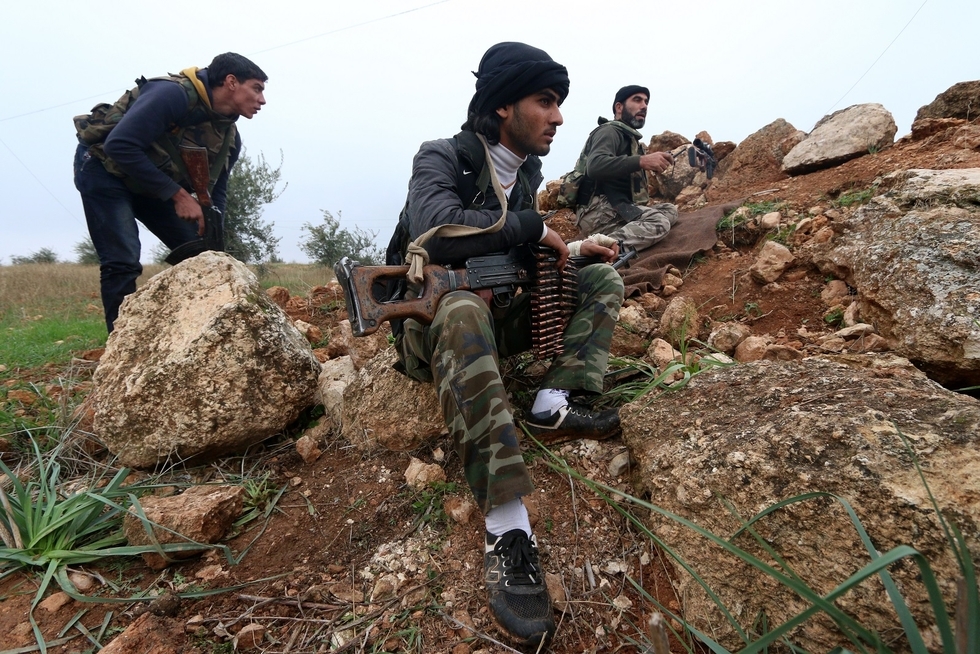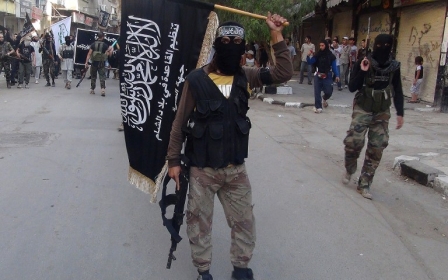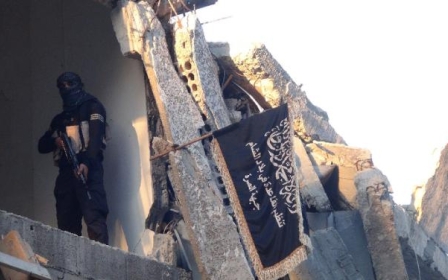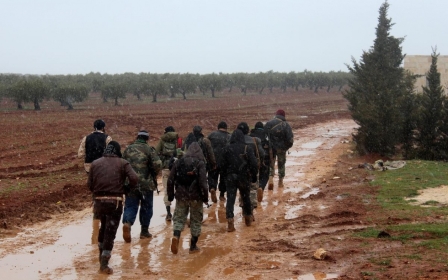Nusra Front frees some of the US trained fighters in Syria

Al-Qaeda's Syrian affiliate the al-Nusra Front has freed several members of a US-trained rebel force that it kidnapped two weeks ago, the Western-backed unit said in a statement.
In a statement circulating on social media, Division 30 said seven of its members had been freed by al-Nusra after being captured in late July.
"Seven Division 30 fighters who were being held by the brothers in al-Nusra Front have been freed," the statement stamped by the unit said.
"We welcome this noble initiative and urge the brothers of al-Nusra and hope that they will release in the coming hours the group's commander and other fighters," the statement continued.
It did not specify where the releases took place. The kidnappings all happened in northern Syria, where the leader of Division 30, Nadim Hassan was also captured. In a previous interview, Hassan voiced concerns to the New York Times that his group's US trainers had not promised to protect the fighters if they came under fire by government forces.
Division 30 is among the “train and equip programme” units that received training as part of a US-led programme operating from Turkey. The units are intended to create a force to fight the Islamic State group.
But after the first 54 members of the force entered Syria in July, 13 were kidnapped by al-Nusra, including a commander, and at least three more were killed in clashes with the group.
Al-Nusra accused the captured fighters of serving US interests and claimed responsibility for the kidnapping in a video purporting to show some of the detained forces.
Soon after the kidnapping took place, al-Nusra issued a statement that urged the rebels to “return to the right path” and “fight the regime of [President Bashar al-Assad] and in defence of your family”.
New MEE newsletter: Jerusalem Dispatch
Sign up to get the latest insights and analysis on Israel-Palestine, alongside Turkey Unpacked and other MEE newsletters
Middle East Eye delivers independent and unrivalled coverage and analysis of the Middle East, North Africa and beyond. To learn more about republishing this content and the associated fees, please fill out this form. More about MEE can be found here.




